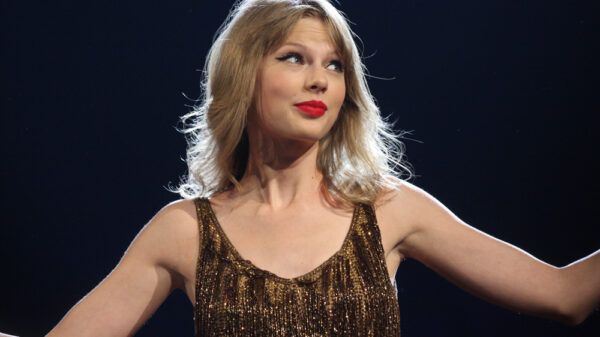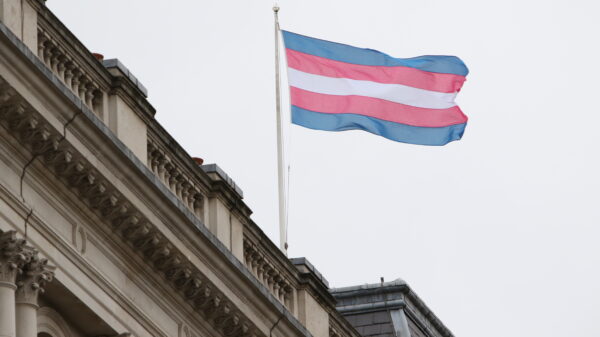Staff Writer TJ Sari breaks down some of the key moments of the 67th Grammy Award and points towards a time of hope in the creative industry.
On February 2nd, the 67th Grammy Awards took place in Los Angeles, a home of American artistry and dreams. Recently ravaged by the Eaton fires which began on January 7th, it was only right for the Grammys—long able to call the West Coast its home—to use the occasion to raise funds for wildfire relief efforts.
The mobilisation of the artist community this year towards activism and social awareness highlights a newer key dimension to the Grammys, not only as an awards ceremony, but as platform to do good. Especially in light of the dire state of affairs in the United States, artists this year took to the stage, using both the medium of performance and their winners’ speeches to bring acknowledgement towards more pressing matters.
Chappell Roan Calls On Labels To Give Artists Liveable Wages
This year’s Grammys were highlighted by several key figures, but it is difficult to dispute the buzz Chappell Roan seemed to invite from the real world and online spaces, which pushes her to the top of the list of highly-anticipated artists. Roan, who was a nominee and the winner for the Best New Artist category, gave a moving speech which directed attention towards the greed of the music industry in the biggest profit-driven era for production labels, and called for newer artists to be paid livable wages.
“If my label would have prioritised artists’ health, I could have been provided care by a company I was giving everything,” Roan said, “so record labels need to treat their artists as valuable employees with a livable wage and health insurance and protection. Labels, we got you, but do you got us?” From the audience, a thunderous applause roared in agreement with Roan.
Doechii Becomes The Third Woman To Win Best Rap Album
In a time where the integrity and ethics of the music industry are being critically questioned by consumers everywhere, Doechii’s success in the Best Rap Album category with her mixtape, Alligator Bites Never Heal, served as a reminder for why artists create. Being only the third woman to ever win the award—preceded by only Lauryn Hill in 1999 and Cardi B in 2019—Doechii’s history-making win is nothing short of a victory for not only women in the music industry, but for Black female creatives everywhere. Her awareness of this was reflected in an empowering speech that certainly rendered her triumph undeniable.
“This category was introduced in 1989, and two women have won–three women have won; Lauryn Hill, Cardi B, and Doechii!” the teary-eyed breakout star corrected herself. “I wanna tell you, you can do it,” she continued, “…you are exactly who you need to be, to be right where you are, and I’m a testimony.”
Kendrick Lamar Pays Homage To His Compton and LA Roots
Meanwhile, Kendrick Lamar sweeped the floor, amassing five awards for his diss track Not Like Us. In the aftermath of his public conflict with Canadian singer-songwriter Drake, Kendrick’s back-to-back production of diss tracks against the former, gave life to the scathing rap song. Saving his masterful lyricism for the recording booth, Lamar kept his Record of the Year winner’s speech simple and impactful, honouring his late Aunt Sharon and paying tribute to his Compton upbringing by naming LA neighborhoods closest to his heart, before bringing attention to the neighbourhoods directly affected by the Eaton fires.
“We’re gonna dedicate this one to the city,” Kendrick said, “…And most importantly, the people and the families out in the Palisades and Altadena. This is a true testament that we can continue to restore this city. And we’re gonna keep rockin’.”
Not Like Us, in the days following its release, gave way towards more awareness from the entertainment industry’s consumers by touching on the malpractices that easily occur within the music industry. From its harmful, sometimes life-endangering party and sex culture, to the exposés of criminal activities, the music and entertainment industry in general owe a lot to vulnerable and exploited groups everywhere—certified loverboys, as the song alerts us, can easily be certified paedophiles when the cameras look away.
Household Names Take To The Stage Criticise Trump Administration’s Divisive Executive Orders
The Grammys overall saw many musicians use their stage time to both spotlight and extend love to various vulnerable groups within the USA. This comes as a public response to the recent executive orders issued by the Trump administration which target those most at-risk, such as the erasure of trans identities in an effort to eradicate “gender ideology” and the deportation of immigrants, many of whom are asylum seekers.
Of the many acknowledgements, Shakira’s was one. The industry icon and this year’s winner of the Best Latin Pop Album category honoured her background, expressing an unflinching support for her fellow immigrants. “I want to dedicate this award to all my immigrant brothers and sisters in this country,” she announced. “You are loved. You are worth it and I will always fight with you.”
Lady Gaga, known for her vocality and appreciation for the LGBTQIA+ community throughout her prosperous career, expressed similar sentiments for queer people amidst an era of fear. Upon accepting the award for “Best Pop Duo/Group Performance” alongside Bruno Mars for Die With A Smile, Gaga placed focus on delivering a heartfelt message to the trans community. “Trans people are not invisible,” she spoke. “Trans people deserve love… Music is love. Thank you.”
By far, the most direct callout against the Trump administration was from none other than legendary artist Alicia Keys. Her criticism of the Trump administration’s dismantling of DEI measures was boldly proclaimed as she gave her speech after winning the Dr Dre Global Impact Award. “This is not the time to shut down the diversity of voices,” the Girl On Fire singer declared, “We’ve seen on this stage talented, hardworking people from different backgrounds with different points of view, and it changes the game. DEI is not a threat, it’s a gift.”
Hope On And Off The Stage
This year’s Grammys saw many women and people of colour well-deservedly winning big during the awards ceremony. In light of recent events, 2025 is definitely daunting, terrifying, and exciting all at once—and it’s only the start of February. Nevertheless, if there is one thing we can take away from the 67th Grammy Awards, it is that art and music hold space for hope, and we must encourage its authentic creation and appreciation if we are to do what we can with hope.











